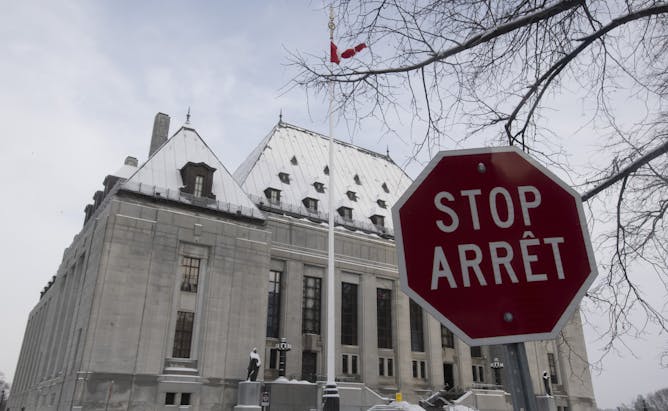|
It’s become clear during the second wave of COVID-19, where outbreaks are happening in high-density or overcrowded housing situations, that the pandemic is not just a health crisis, but also a housing crisis.
Today in The Conversation Canada, housing experts Carolyn Whitzman of the University of Ottawa and Penny Gurstein of the University of British Columbia share insights gleaned from a series of global roundtables they’ve organized over the past two months. Participants from all continents identified more than 50 potentially good practices that can inspire better action, and Whitzman and Gurstein outline 10 key areas of improvement for our readers. They also point to some “exciting new policy directions” either currently being implemented or
on the near horizon.
Also today:
Regards,
|

Overcrowded housing is a key COVID-19 culprit.
(Nazish Mirekar/Unsplash)
Carolyn Whitzman, L’Université d’Ottawa/University of Ottawa; Penny Gurstein, University of British Columbia
Canada is making big strides when it comes to COVID-19 housing policy, but permanent measures and oversight lag behind compared to some global efforts.
|

A lone cyclist rides past the University of Toronto campus during the COVID-19 pandemic in Toronto on June 10, 2020.
THE CANADIAN PRESS/Nathan Denette
Kim Hellemans, Carleton University; Alfonso Abizaid, Carleton University; Robert Gabrys, Carleton University; Robyn McQuaid, Carleton University; Zachary Patterson, Carleton University
University students had high rates of mental health issues before the pandemic. The additional stressors of COVID-19 and social isolation will make them even more vulnerable over the winter.
|

The Supreme Court of Canada’s recent decision has put a halt to any legal claims that there’s no difference between corporations and people.
THE CANADIAN PRESS/Adrian Wyld
Jennifer Quaid, L’Université d’Ottawa/University of Ottawa
The Supreme Court of Canada's recent ruling against a company that claimed a fine against it constituted cruel and unusual punishment will quell fears of weakening corporate law.
|

Une étude montre que ce sont les jeunes Québécois, en particulier ceux de la grande région de Montréal, qui éprouvent le plus de crainte face à l’avenir du fait français dans la province.
LA PRESSE CANADIENNE/Graham Hughes
Stéphane G. Lévesque, L’Université d’Ottawa/University of Ottawa; Jean-Philippe Croteau
La majorité des francophones hors Québec ne croit pas que le français soit en péril, tandis que les Franco-Québécois s’inquiètent de l’avenir de leur langue dans une proportion similaire.
|

Les cours de danse à distance, sous diverses formes, ont connu une forte croissance depuis le début de la pandémie.
Shutterstock
Cathia Papi, Université TÉLUQ
Depuis le printemps, les amateurs de danse sont privés d’un loisir qui occupe souvent une place importante dans leur vie. Comment s’adaptent-ils à cette situation ?
|
Environment + Energy
|
-
Dolf Gielen, Colorado School of Mines; Morgan Bazilian, Colorado School of Mines
Choosing former Secretary of State John Kerry as climate envoy is an important first step. To regain trust, the U.S. will also have to take concrete actions to cut its own greenhouse gas emissions.
|
|
Health
|
-
Adam Taylor, Lancaster University
Medical science may be methodical and systematic, but some of the greatest discoveries have been through chance.
|
|
Science + Technology
|
-
Tracie McKinney, University of South Wales
How scientists discovered the 'Popa langur' was a separate species of just 200 monkeys.
|
|